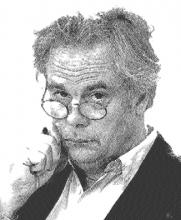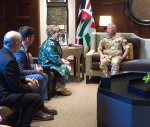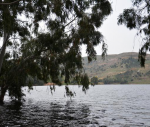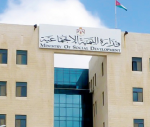You are here
Russia growing tough
Nov 06,2014 - Last updated at Nov 06,2014
President Vladimir Putin is often painted as an ogre in the world’s media.
The seemingly eternal president of Russia has an iron grip on his nation and a foreign policy to match. Yet, a large majority of Russians give him their support.
Is it his early economic success? Or is it because of a new stability?
Is it the nation’s growing self-respect after the ignominious years that followed the demise of the Soviet Union, or is it a sense of besieged defensiveness because of the advantage the West undoubtedly took of Russia after that demise?
The answer is a bit of all these.
Few in the outside world seem to talk much about what happened after president Boris Yeltsin pushed aside Mikhail Gorbachev, the last president of the Soviet Union.
Few recall the political and economic upheavals of that time and why the stability of Putin’s governance is welcomed by people at large.
Perhaps it is because this was a quarter of a century ago and people now ruling the West, and the journalists who report on them, were only teenagers or in their twenties at the time — and suffer from that common Western political disease of lack of perspective and little knowledge of history.
Immediately after Gorbachev’s fall, two things happened. Under the influence of misguided, radical, Western free-market economist advisers, price controls were lifted and the price of food rose by 500 per cent, and later inflation soared.
Second, the US sent a treasury team to Moscow to check whether the new Russia would pay back the Soviet debt without a word on economic aid. (Compare this to the enormous economic help offered defeated Germany and Japan at the end of World War II.)
In March 1993, Yeltsin went on TV to announce he was suspending the unhelpful and recalcitrant parliament, and called for new elections.
The vice president, Alexander Rutskoy, and parliamentary members attempted to impeach Yeltsin. Yeltsin retaliated with a referendum where he won a slim vote of approval, but in a low turn out.
Moreover, the ballot papers were quickly incinerated. Yeltsin’s opponents crying foul saw no reason to back down.
In September, the US-supported Yeltsin dissolved the Duma (parliament). In response, 200 deputies occupied the building, voted to strip Yeltsin of the presidency, swore in Rutskoy as president and armed themselves.
Yeltsin ordered a shelling assault on the parliament building.
Yeltsin, the “democrat”, was photographed wielding a machine gun. The rebellion was put down. Yeltsin called elections. With the aid of drugs to keep him going, he won.
Yeltsin then backpedalled on economic reforms and his government became more nationalistic. It warned against the expansion of NATO and argued with Ukraine over Crimea.
Meanwhile, corruption soared. Rich businessmen, each struggling to be top dog, blew each other up with car bombs.
In December of that year, the long war in Chechnya began.
The war dragged on, the economy was in dire straits and in the parliamentary elections a year later, the Communist Party looked set for a major rebound. Yeltsin’s party managed a narrow victory.
In the 1990s, Yeltsin changed his prime ministers frequently, (one was only 35) searching elusively for competence and stability.
The national debt rose, pensioners were not being paid and workers were owed $9 billion in unpaid wages.
In August 1998, the ruble crashed. Many banks and businesses went into liquidation. The state prosecutor was said to be on the trail of prosecuting Yeltsin’s family for corruption.
It was then — in August 1999 — that Yeltsin appointed yet another prime minister: Putin.
On December 31, Yeltsin resigned, having struck a deal with Putin that his family would be protected from prosecution if he made him president.
It was the first peaceful and democratic transfer of power in Russian history.
Putin’s greatest achievement was to revive the economy.
Inflation came down, pensions were paid and incomes increased by an average 250 per cent.
But on his watch, Chechen gunmen took 800 hostages and 130 of them died when Special Forces made a mess of a relief operation.
Later, two passenger jets were downed and terrorists seized a school and hundreds of children, parents and teachers died in another botched rescue operation.
The economy is no longer doing well.
Nevertheless, after the vicissitudes of the Gorbachev and Yeltsin years, Putin seems to be a steady leader who gets on top of problems.
State-controlled TV stations (as in France) help ensure popular support.
For now, Putin’s support has put down deep roots.
The West must understand why. It is far more than the popular take over of Crimea or the meddling in Ukraine.
If the West had given Gorbachev and Yeltsin a sound economic hand, all this turbulent history might never have happened.
Now Russia, not just Putin, is in a very assertive mood.












